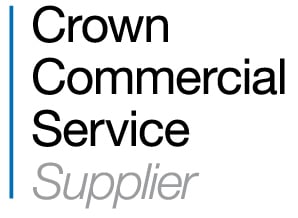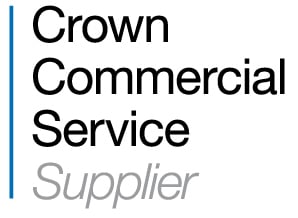Understanding Digital Services in Government – Two-Day Programme

This is an open programme and an in-house training course, which we can deliver either online or in person. For further information and pricing contact [email protected] or phone on +44 20 7661 7817.

Global Government Forum, as part of Pendragon International Media Ltd, have been named as a supplier on Crown Commercial Service’s Learning & Training Services DPS Framework. All our Learning and Training services are included in the framework.
Crown Commercial Service supports the public sector to achieve maximum commercial value when procuring common goods and services.
Overview
This training course will first of all provide an introduction to what digital means and examine the scope of digital in all our lives today.
It will then build on this information to provide a comprehensive understanding of the scope of digital services in government and the positive benefits for both public servants and the citizens who interact with government.
It will look at what digital service provision means, how to work using digital technologies, and it will also look at what works well, bringing benefits for all concerned, and what pitfalls to avoid.
Who is this seminar designed for?
The seminar is designed for public servants at all organisational levels, who need to quickly acquire a thorough understanding of what the digital world is, how it works, and why governments are moving into the digital sphere in working practices and service provision.
How will you benefit from attending?
You will acquire knowledge of the scope of digital in all our lives, as well as how and why governments provide digital services. You will also gain reassurance from understanding how digital can make our working lives easier, and how it can help citizens interact with government services more efficiently.
Learning Outcomes
You will:
Understand what digital means, and the increasing scope of digital in our everyday personal lives
Learn the rationale and benefits of digital service provision in government
Understand the benefits that digital can bring to both public servants in their working practices, and to users (citizens) in their interaction with government
Examine the scope of government digital services that have been provided so far in different contexts, and work through how we can apply some of these case studies to the context of your work
Understand the importance of communications internally and externally in the context of digital service development and delivery
How to action plan for how to implement some of this knowledge in your own roles and in the work your teams may be asked to cover in the digital realm
Agenda
Day One
Welcome and Introductions
Session One: Overview – Digital in our Lives
What is the scope of Digital in our lives? – Smart Phones, Google, Apple, Amazon, Microsoft, Facebook, Netflix, Social Media, Take-Away Meals, Music.…
What digital apps have you used in the last 18 months?
A shift in generational societal attitudes from the desirability of products (cars, washing machines, CDs) to experiences (interactivity, connectivity, responsiveness, immediacy, access, video)
What has any of this got to do with government? – legal framework, regulations, privacy, data security, contracts, cables, satellites, standards, compliance – all intended to ensure user-focused quality
Discussion
Break
Session Two: Digital Services in Government
Presentation of the scope of government digital service provision
What kind of government services have been digitised so far and what is the potential range?
Case studies from different countries
Overview of the vision and the ambition of digital services in the leading countries’ provision of services
What do these mean for me as a public servant?
Discussion
Lunch
Session Three: What are the Benefits of Digital Government Services?
What it meant by government customer services?
What is the rationale for digitising customer services in government?
What are the benefits for providers (public servants) and users (citizens)?
Analysis of applicability of digital working to internal government interaction and processes and to externally-focused services
The vision – ease of access to services, usability of apps, efficient online experience, increased citizen participation (from which demographics?), live feedback, cost saving, productivity, remote working
For the end user – personalisation, responsive, digital identity, one-stop shop, better opinion of government through efficient and pleasant interaction
Discussion
Break
Session Four: Some Key Concepts in Government Digital Service Provision I
Data and cyber security and awareness – what do these concepts mean, and why are they so vital to successful digital transformation?
Methods for assessing data-literacy in the public service workforce and in the population as a whole
Assessment of organisational/team capacity and expertise
What do we mean by “user-centric design” in government digital service provision?
Benefits analysis – methods for assessment and application in digital service provision
Discussion
Close
Day Two
Session One: Key Concepts in Government Digital Service Provision II
An overview of IT skills that you may need to use – Excel, Dashboards, the Cloud
Agile – what does this mean in general terms and for digital service provision?
AI – digitising the analysis of incoming data and evidence from outside sources
Understanding users’ opinions, preferences and habits – what does this mean in terms of digital product concept design?
Risk – identifying generic risk and making use of specific risk analysis methodologies for the context of government digital services
Break
Session Two: Preparing the Ground Internally in the Public Service
How can we change organisational and team cultures, thinking and attitudes and overcome resistance to change?
Change management in the context of digital public service development
Legacy systems and processes, organisational culture, resistance to change, pace of change, recruiting the right talent, inclusiveness in prospects for all staff demographics
Understanding colleagues’ behaviour and listening to concerns
Approaches for achieving buy-in – communications, setting realistic, credible targets, empowering innovation with balanced responsibility and freedom
Discussion of delegates’ experiences, approaches and concerns
Lunch
Session Three: External Communications Strategies with the Citizens
Why would the public want to change their behaviour? – How do we communicate benefits to people who are happy doing things as they are?
Planning and implementing communications strategies, including narratives, advocacy and persuasion
Identifying users and segmenting audiences, ensuring inclusivity and involving hard-to-reach groups
Session Four: Workshop: Action Planning
Project planning – Who’s going to be doing what? – putting the right people in place, personnel resource planning
Fundamentals of project planning – products, processes, progress measurement, performance management, timescales, contingencies, M&E
How to make robust project plans and deliverable route maps in digital service design and roll-out in the context of your own digital team
Final discussion
Close
Please contact us for further details, or to arrange a conversation with a member of our training team to discuss in-house delivery options, including tailoring the day’s training to your specific organisational development needs. You can email David Leakey on [email protected] or phone on +44 20 7661 7817.

Crown Commercial Service supports the public sector to achieve maximum commercial value when procuring common goods and services.








